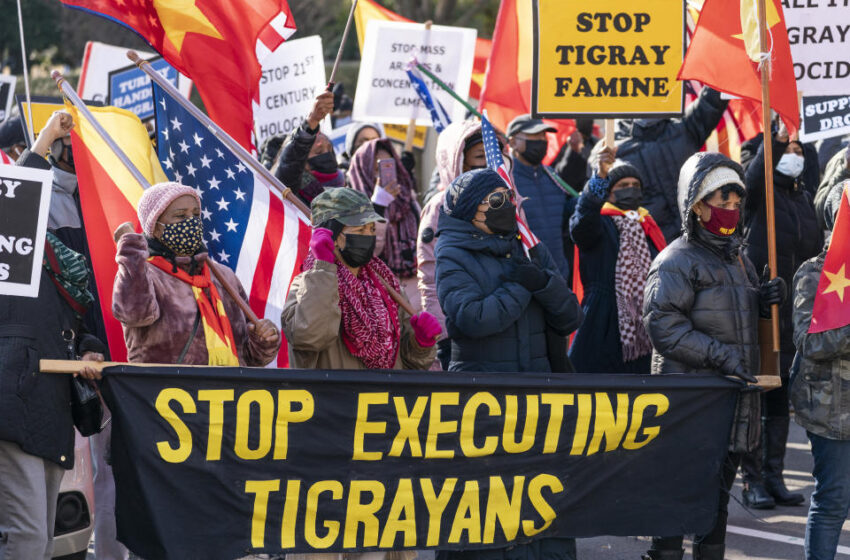
Tigray Welcomes Appointment of the Former ICC Chief Bensouda-led Commission to Investigate Crimes in Ethiopia
Source: Globe News Net
March 8, 2022
The Government of Tigray welcomed appointment of three members to the international commission established by UN Human Rights Council to undertake investigations into crimes committed in the ongoing war in Ethiopia.
In a statement on Monday, Tigray government expressed its appreciation to the President of the Human Rights Council for appointing Fatou Bensouda of the Gambia, Kaari Betty Murungi of Kenya, and Steven Ratner of the United States of America to serve as the three members of the Commission.
The statement said that Ethiopian government has continued to “unleash a campaign of genocide, ethnic cleansing, and other systematic measures to exterminate the people of Tigray, such as through starvation, airstrikes and drone attacks, and arbitrary mass arrest of Tigrayans across Ethiopia solely on account of their identity”.
“In the context of these shocking atrocities, the appointment of members of the International Commission of Human Rights Experts on Ethiopia is a necessary first step in the international community’s attempt to stop the commission of further atrocities as well as hold the perpetrators of these heinous crimes accountable”, the statement added.
Given the distinguished pedigree of the newly appointed members of the Commission in the legal and human rights arena, the Government of Tigray expressed its confidence that they will discharge their responsibilities with the utmost integrity, in accordance with the Council’s established working methods and procedures.
The Government of Tigray has said that it has established a high-level taskforce to conduct its own investigation into the genocide crimes committed on Tigrayans. The government has said it is fully committed to cooperating with the Commission as it fulfils its mandate.
The statement also said that the Government of Tigray supports international community’s call on Ethiopian government to accept the legitimacy and mandate of the International Commission of Human Rights Experts on Ethiopia.
“If the Abiy regime persists with its unjustifiable objection to the Commission and, by extension, the very of idea of independent investigations into atrocities committed throughout the conflict, the international community should interpret this intransigence as an admission of guilt on the part of the Abiy regime,” the statement noted.
Tigray war: Background
The war began in November 2020 when Ethiopia’s army, backed by Eritrean and Somalia national armies and troops from Ethiopian regional states, moved to oust a TPLF-led regional government in Tigray after a long-standing political hostility between Abiy’s ruling party and the TPLF. The other dimension of the war was a genocidal campaign that has been brewing by elites from the Amhara and the Eritrean government.
The more than 16-month-old war was marked by extreme brutality, including the use of rape and hunger as weapons of war, massacres and ethnic cleansing against Tigrayans. As a result, the conflict has left thousands dead and forced many others to flee their homes with hundreds of thousands driven to the brink of starvation, according to the United Nations.
Since June, Tigray has been put under a total humanitarian blockade by the Ethiopian government, with only less than 10 %of the needed essential aid allowed to enter the region and no aid reached the region since December 15, 2021. This has resulted in man-made famine to more than 900,000 people in the region and more than 5400 deaths as a result.
The World Health Organization last month called for “unfettered access” into war-wracked Tigray, saying its first delivery of life-saving medical supplies since July last year had stalled due to lack of fuel.
Nearly 40 percentof people in Tigray, a region of six million people, face “an extreme lack of food”, the UN said last month. The dire assessment published by the World Food Programme (WFP) came as humanitarian groups increasingly curtail activities because of fuel and supply shortages.
An estimated 9.4 million people in northern Ethiopia’s Tigray, Amhara, and Afar regions are in desperate need of humanitarian assistance. Millions more are also suffering from severe food shortages, acute malnutrition is rising, disease and chronic illnesses are going untreated.



